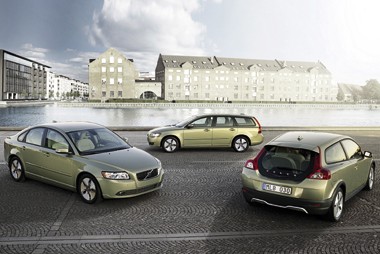For the first time in EU history, top automotive and transport officials at the European Parliament discussed the implications of autonomous driving, a hotly debated subject within the automotive industry.
The seminar, hosted by MEP Christofer Fjellner and supported by Volvo Car Corporation debated the hot topics which could set the direction of autonomous driving policy within Europe i.e policy, safety issues, traffic congestion, and fuel economy.
The EU is currently slightly lagging behind the U.S
Autonomous driving is forging ahead in the US where steps are currently being taken to advance the technology by states adopting laws allowing for public road testing. However, Europe continues to lag behind the US with restrictive legislation that could, for the foreseeable future, effectively prevent the introduction of more advanced autonomous driving systems.
The largest obstacles for introducing autonomous driving are the Vienna Convention and National Rules and Regulations. The Vienna Convention was last amended in 1968 where Article 8 ‘Drivers’ states that ’Every driver shall at all times, be able to control his vehicle or to guide his animals.’
The interpretation of this differs:
• In some countries; drivers must always be in control, potentially making autonomous vehicles illegal.
• In other countries; drivers must be capable of being in control potentially making autonomous vehicles legal.
There are on-going activities to modify the Vienna Convention. However, proposed amendments are still not expected to make autonomous driving cars legal in some countries. Although many countries in Europe interpret the Vienna Convention in a way that will not restrict the introduction of autonomous driving technologies, Mr. Keir Fitch, Deputy Head of Vice President Siim Kallas Cabinet (European Commission) acknowledged the crucial need for an EU-wide approach both on road safety and liability issues.
Commenting on the technology aspects, Mr Bart Van Arem, Professor at Technical University of Delft, pointed out the importance of experimenting self-driving systems by taking the cars on the roads, with previous agreement from local authorities.
Toscan Bennett, Vice President Product Planning & Management Volvo Cars, highlighted the benefits of autonomous driving and advanced active safety systems and called for full commitment from policy-makers: “Cities used to be designed around cars, the technology supporting automated cars can shift this paradigm by allowing cars to define cities. We look forward to working hand-in-hand with EU policy-makers, the industry and researchers to make this technology a reality on European roads”.
It is an on-going public awareness raising exercise, involving drivers, governments and academic researchers. While the technology is ready, appropriate infrastructures and legal framework are still missing.
Mr. Keir Fitch closed the debate by stating that “the priority for the European Commission is to get the certifications right and to get the liability issue sorted”.
Policy makers, industry representatives and researchers agreed on the crucial need for a pan-European legal framework and discussions will start at EU level to help European countries advance in the autonomous driving space.


















Gaffs - 04/07/2013 17:53
Presumably the systems fitted to these vehicles will be operated/guided by GPS ? if so then I think they would be better ensuring that all Sat Nav systems are up to date and more reliable first, all I can see with these is accident after accident.....